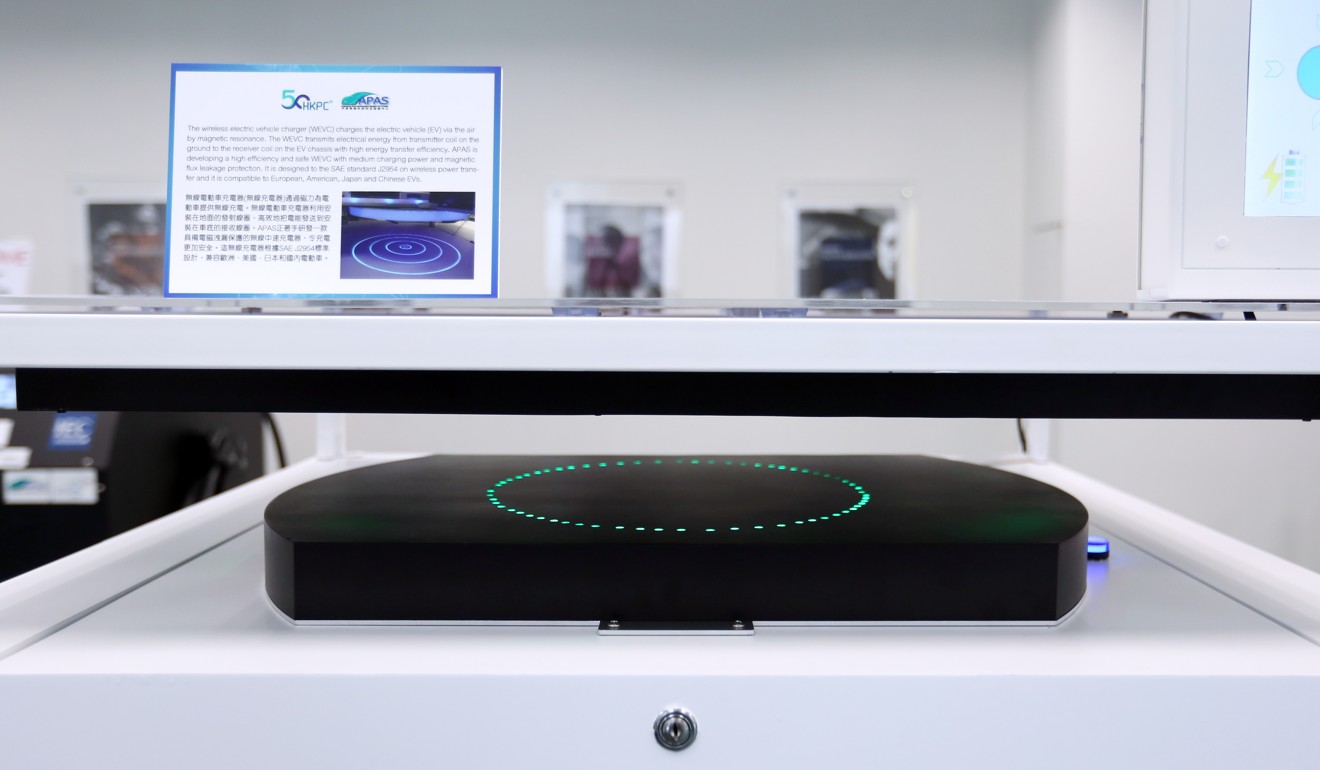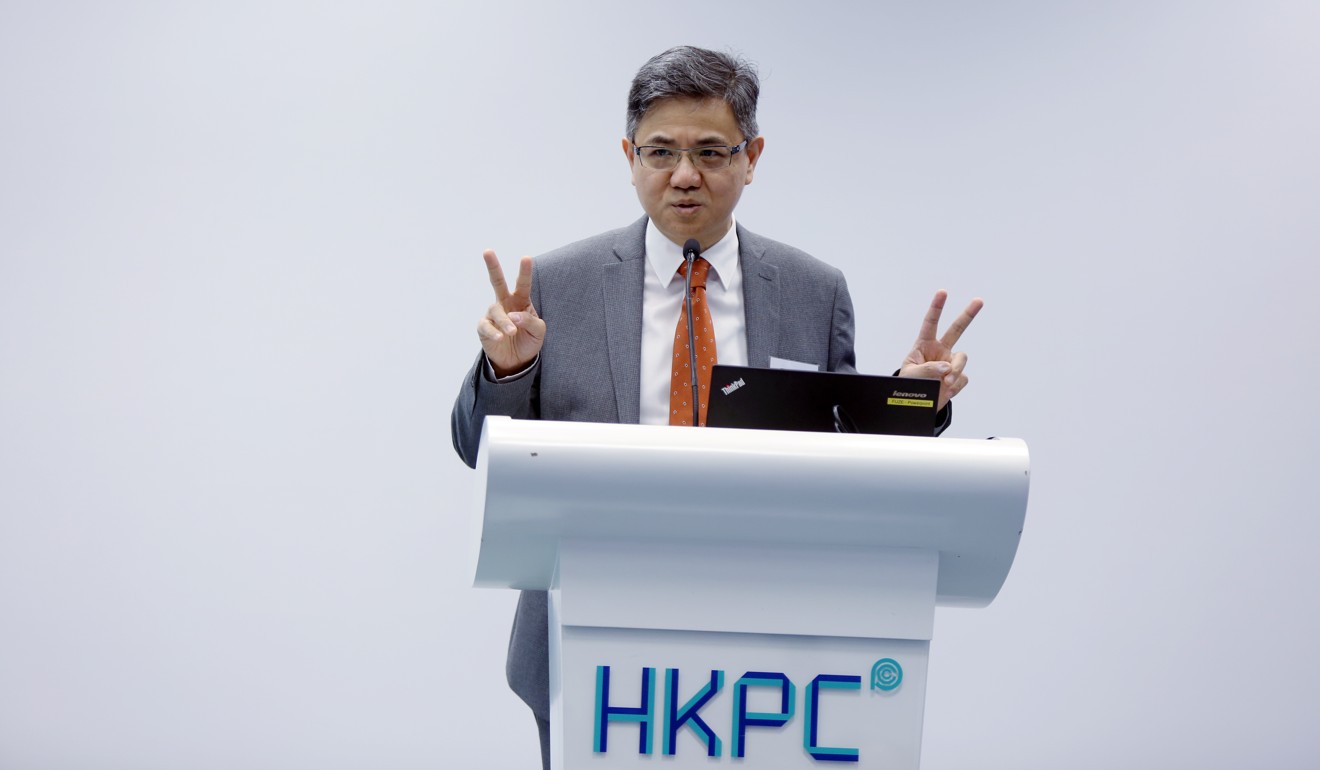
Could these home-grown chargers jolt life into Hong Kong’s electric car market?
Hong Kong Productivity Council devises a wireless product for home use and a charger for private vehicle parks
Good news if you drive an electric car – Hong Kong has devised a wireless system for the home that makes recharging easier and more flexible.
Based on overseas technology, the Hong Kong Productivity Council has also developed an e-car charger suitable for use in private car parks.

However, the government-backed body conceded that cost was a high barrier in commercialising the technology. A charger for a private car park costs HK$30,000, rising to HK$90,000 for an individual home.
Lawrence Cheung Chi-chong, director (technology development), said on Friday the council had spent a year and a half developing the products at a cost of more than HK$2 million.
“We hope to commercialise the technology within a year,” he said.

Locky Law, the Tesla owner representative of electric vehicle group Charged Hong Kong, said demand for e-vehicles mainly depended on government policies or incentives.
He added that the chargers were mainly applicable to private parking areas, which meant e-car owners would have to bear all the costs. And they needed to apply for a licence to install the product.
“Sales of e-vehicles have been almost zero in recent months since the revised rate of tax came into effect, which means the development of accessories are a nonsense that have few marketing prospects,” Law said.
This meant that from April 1, a Tesla Model S, which had cost HK$800,000, rose to about HK$1.5 million. Not a single newly purchased Tesla was registered in the whole of April.

